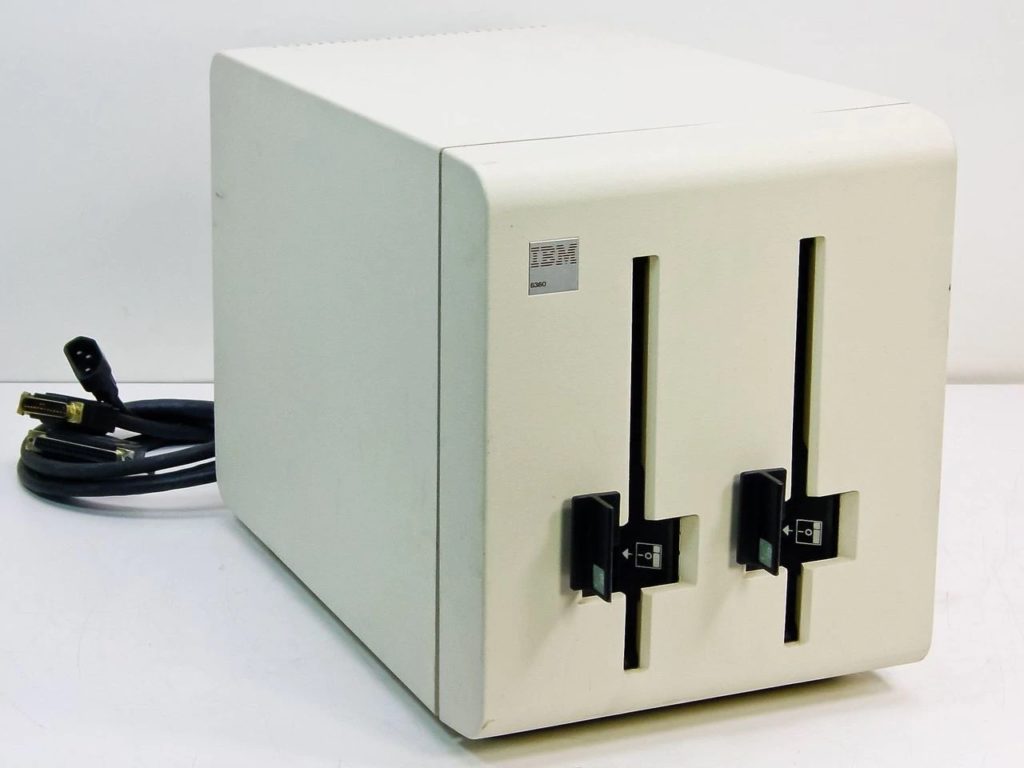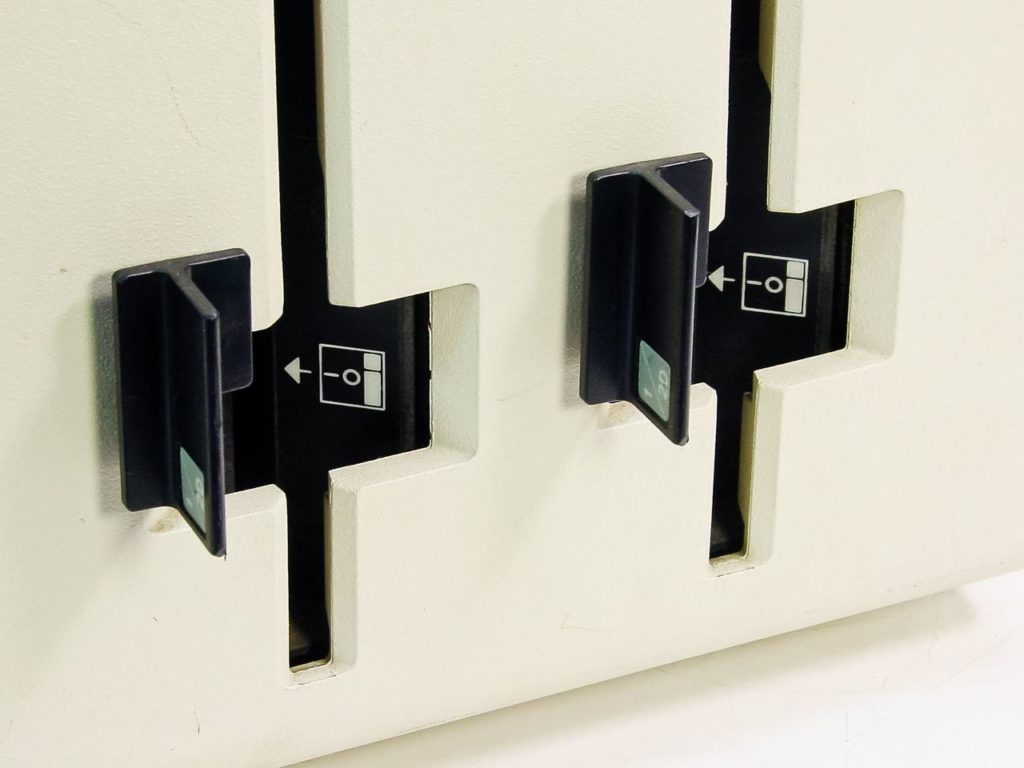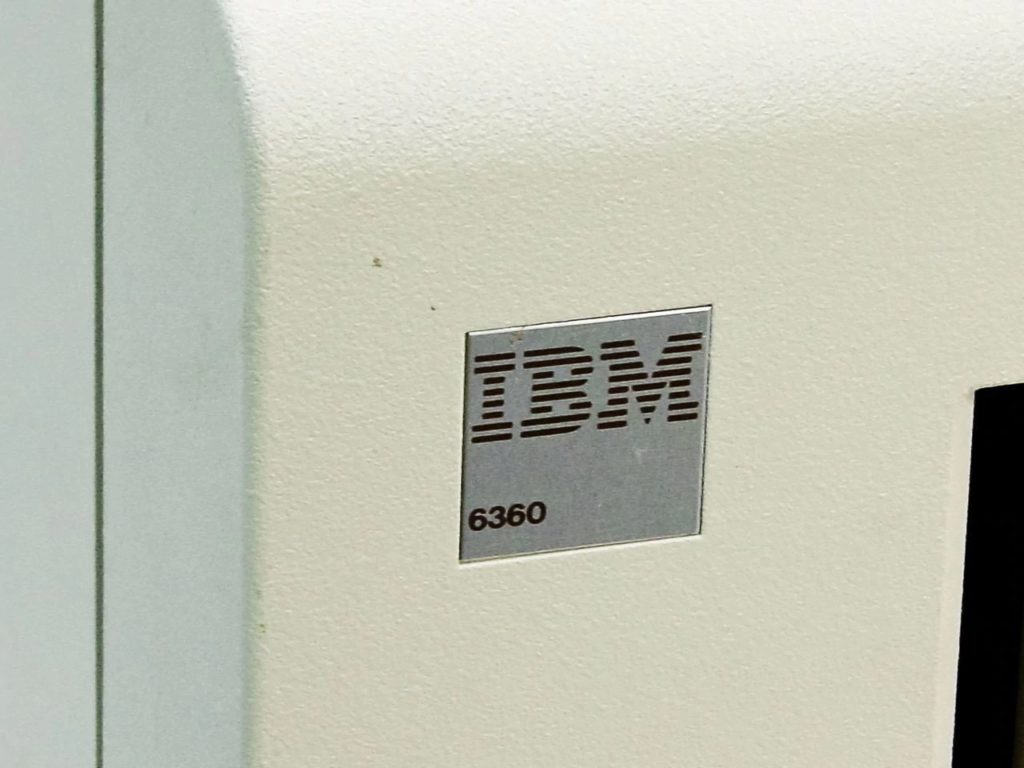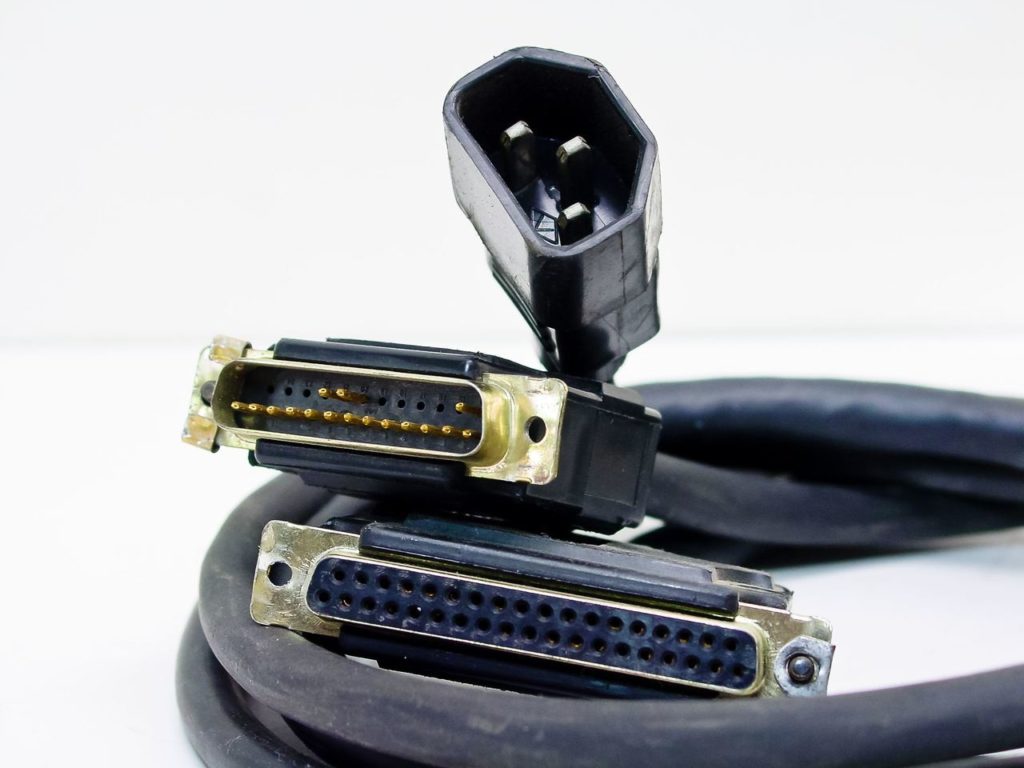External 1.2MB 8″ floppy disk drive
Abstract:
I have a weird obsession with ancient storage media, so I bought a 8″ floppy disk drive built in 1983 and a pack of disks. I wanted the ability to read and write these ridiculous floppies but I wasn’t interested in buying a huge IBM Displaywriter to go with it.
This project is a low-level controller for the IBM 6360 with a USB interface.
| Signal | Comments |
| Data Bus Bit [0-7] | Typical 8-bit data bus. |
| Address Bit [1-4, 8] | Each disk has 77 tracks. Each track has 26 sectors of 128 bytes each. 5 address bits can locate 32 indices – perhaps these are registers in the onboard disk controller? |
| DMA [Request, Acknowledge, Request transmit, Request receive, Acknowledge transmit, Acknowledge receive] | Perhaps there are 3 stages: 1. A DMA write (transmit) or read (receive) is requested by the host. 2. The DMA action is acknowledged by the disk controller. 3. A data block is contiguously sent from either the host or the drive. 4. The DMA request line is deasserted. |
| Interrupt [1, 4, 7] | WTF |
| Diskette Select | |
| Diskette Ready | |
| I/O Read | |
| I/O Write | |
| Terminal Count | |
| Select | Side select? |
| Reset | Obvi. |
Resources:
- https://hackaday.com/2017/01/22/an-eight-inch-floppy-for-your-retrocomputer/
- http://www.smbaker.com/qume-842-8-floppy-drive-with-a-rc2014-z80-retrocomputer
- http://bitsavers.trailing-edge.com/pdf/ibm/6580_Displaywriter/
- https://www.youtube.com/watch?v=mlRQAzzwzPA
- https://www.digikey.com/short/pqrdcj
- https://github.com/roybaer/usb_floppy_adapter
- https://hackaday.com/tag/floppy/
- http://hxc2001.free.fr/floppy_drive_emulator/
- https://www.digikey.com/products/en/connectors-interconnects/d-sub-connectors/439?k=DB37&k=&pkeyword=DB37&sv=0&pv589=25&sf=1&FV=ffe001b7%2C1140050&quantity=&ColumnSort=1000011&page=1&stock=1&pageSize=25






Did you ever figure it out? I have the same fascination as you!
Paul Berger provided this information in June 2016 on classiccmp.org
https://classiccmp.org/pipermail/cctalk/2016-June/024477.html
Paul Berger phb.hfx at gmail.com
Tue Jun 28 08:47:50 CDT 2016
—
If you want to create diskettes from images to use with your Displaywriter you would be much further ahead to obtain a 8″ diskette drive with an “industry standard” interface. The 6360 diskette unit has a drive controller built into into it so the external connection is to the system bus rather than to a diskette controller like the external
floppy connector you have for your PS/2 system.
Even the raw drives (inside 6360) do not have a standard interface and are missing some of the signals that are found on industry standard drives. The signals for controlling head motion are different, however that could be gotten around with a little logic, but the big problem will be the IBM drives do not have a track zero signal. On the IBM drives, when they are initialized they do about 80 outward steps to ensure the head is at track zero. The first generation R/W drives the 33FD or Igar made an unforgettable noise when seeking zero on the drives like the ones in the 6360 it is less noticeable.
Paul
Hey Paul, I found this out the hard way haha. Once I looked inside I was heartbroken, but I recently got a beautiful half-height 8″ drive with a 50p interface so I’ll start another blog page for that!